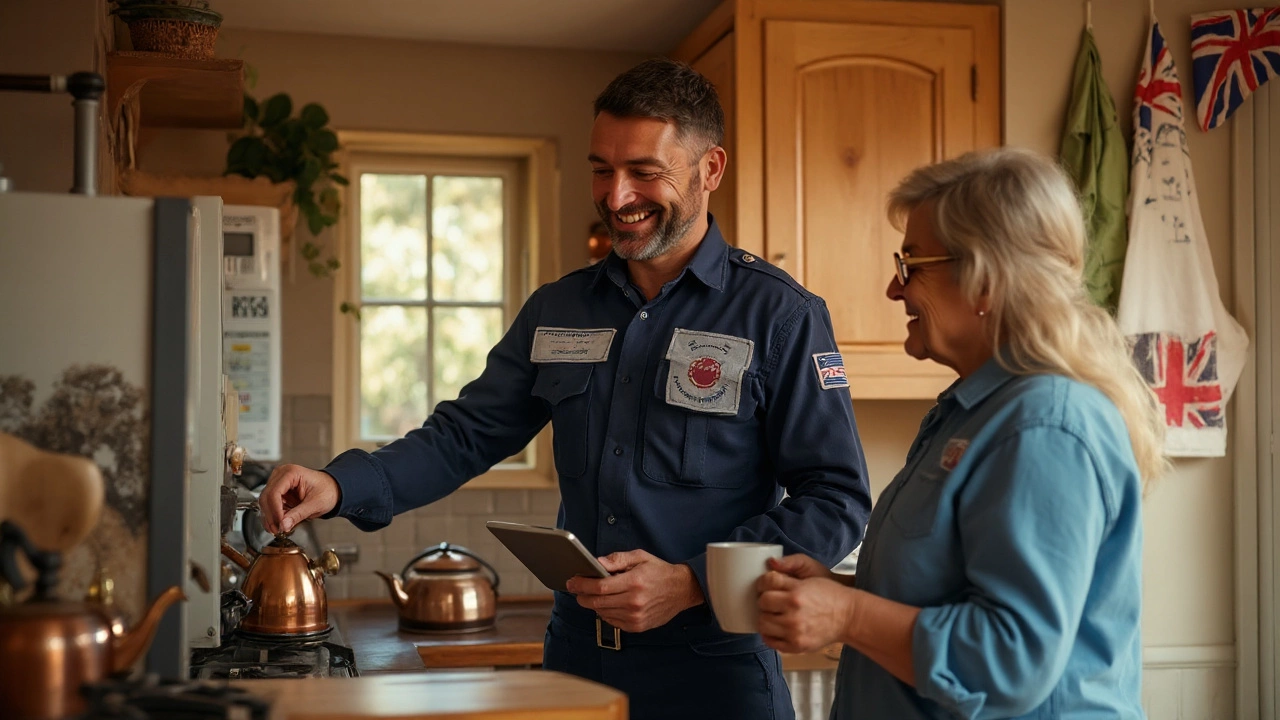
Learn who is legally allowed to service your boiler, why certification matters, costs, and how to pick the right professional for safe, compliant heating maintenance.
If you skim through our September archive, you’ll see three practical guides that answer the questions most homeowners ask. We kept the language simple, gave you step‑by‑step advice, and backed everything with real‑world experience from South Shields. Let’s break down what each post delivers.
First up, we cleared up the confusion around boiler servicing. In the UK, only Gas Safe registered engineers are legally allowed to work on gas boilers. That certification isn’t just paperwork; it proves the engineer knows the safety codes, can spot hidden faults, and will leave your heating system compliant.
Choosing the right professional doesn’t have to be a gamble. Look for a visible Gas Safe ID card, read recent customer reviews, and ask about their experience with your specific boiler brand. Most reputable firms, including ours, will give you a clear price estimate before they start.
Time‑wise, a typical boiler service lasts between 45 and 90 minutes. The quick end of that range happens when the engineer finds a clean, well‑maintained system. Anything that needs extra attention – like a clogged heat exchanger or a faulty pressure valve – will push the job toward the longer side.
To speed things up, clear the area around the boiler, make sure there’s easy access to the gas meter, and have the latest service record on hand. These simple steps let the engineer focus on the inspection rather than spending time on logistics.
The second article tackles a myth many of us hear: "Can an oven last 20 years?" The short answer is yes, but only if you treat it right. Most modern electric and gas ovens are built to survive 15‑20 years under normal use. Heavy daily baking, harsh cleaning chemicals, or frequent power surges can shave years off that timeline.
We laid out three easy habits that stretch an oven’s life. First, keep the door seals clean and free of food debris – a sealed door maintains even heat and prevents wear on the thermostat. Second, avoid self‑clean cycles unless absolutely necessary; the extreme heat can stress internal wiring. Third, schedule a professional check‑up every 3‑4 years to catch early signs of wear.When the oven starts showing warning signs – uneven cooking, strange noises, or error codes that repeat despite resets – it’s time to weigh repair versus replacement. A minor part, like a faulty igniter, usually costs under £150 to fix. On the other hand, a broken control board can run you close to £400, which might make a new, energy‑efficient model a smarter spend.
Our guide also includes a quick decision chart: if repair costs are under 30% of a new oven’s price and the unit is less than 15 years old, repair makes sense. Anything beyond that and you’ll likely save money and energy by buying a newer model.
Overall, September’s posts give you the know‑how to keep your heating and cooking appliances running smoothly. Whether you’re booking a Gas Safe engineer, prepping for a boiler service, or figuring out if your oven deserves a new home, the advice is straightforward, actionable, and rooted in real service experience from South Shields.

Learn who is legally allowed to service your boiler, why certification matters, costs, and how to pick the right professional for safe, compliant heating maintenance.

Wondering if an oven can last 20 years? Here’s the honest lifespan, what shortens it, how to extend it, and when to repair or replace-backed by 2025 realities.

Most boiler services take 45-90 mins. See what changes the time, what a plumber does, and how to prep so the visit runs fast and smooth.